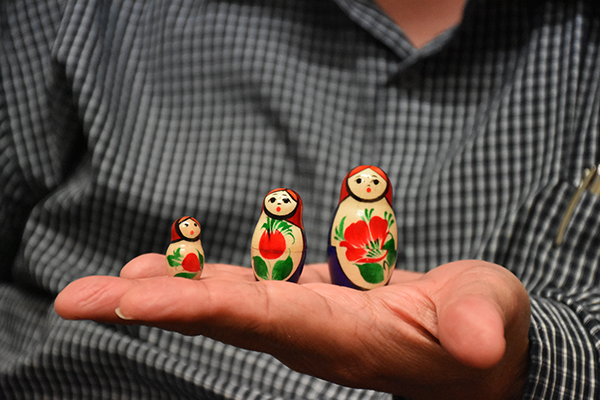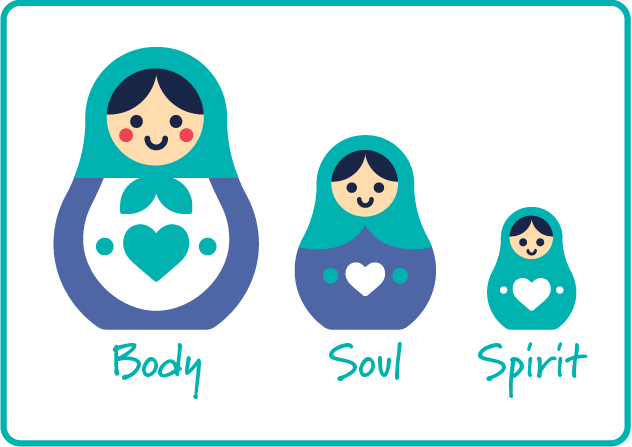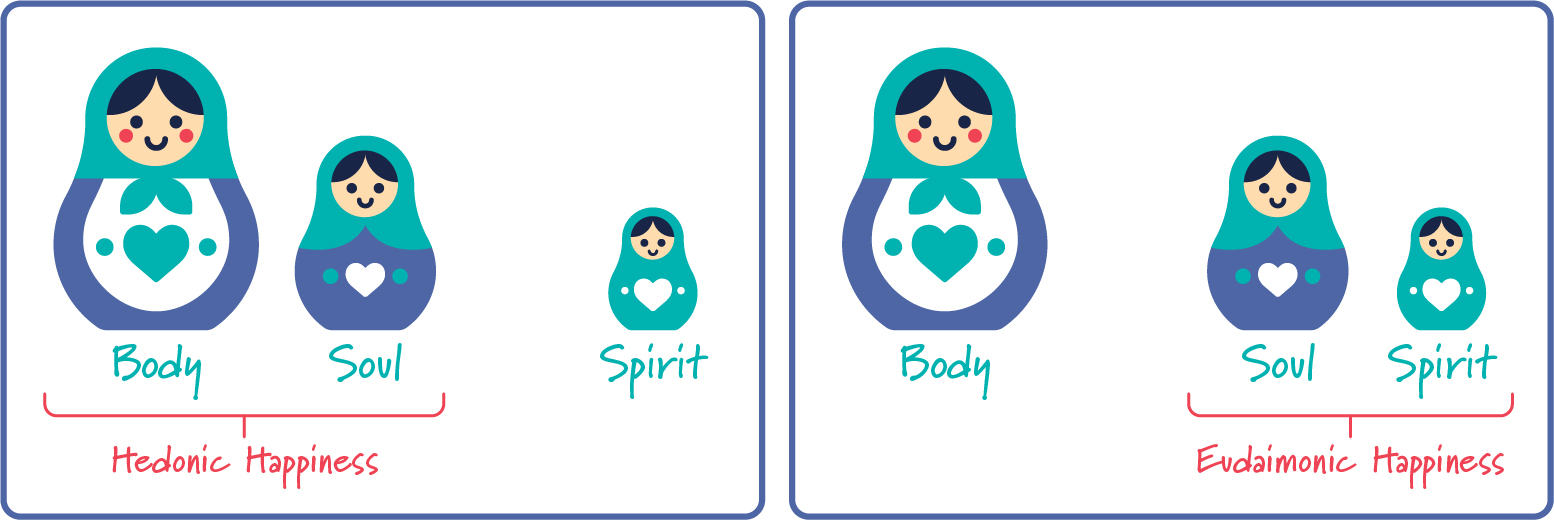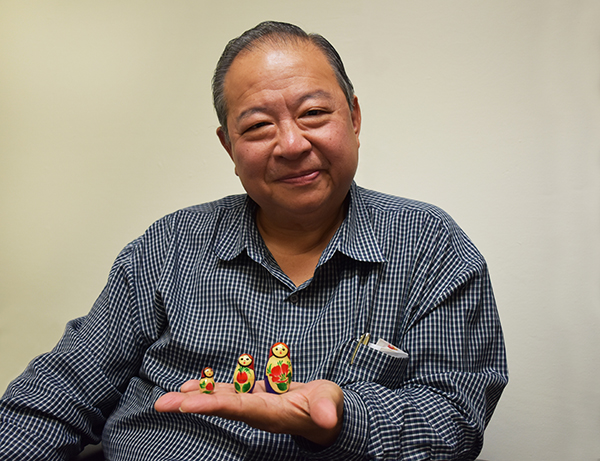What makes you happy?
If you asked me, I’d tell you family, friends, and chocolate.
If I thought a bit deeper, I might say that being surrounded by nature makes me happy. Or spending time with my pets. Or going on holidays.
But what happens if I lose the ones I love? What happens when I grow old and lose my teeth, so that I can’t bite down on a block of Cadbury’s chocolate?
What if I was unable to walk along the beach and dip my toes in the water as I always have?
I’ll tell you what would happen – I would become miserable, sad and depressed.
For a majority of us – in fact around 80-95% of the population in the western world – losing the things that make you happy would make you feel just as miserable.
The issue here is that much of life is impermanent and subject to change.
So how can we achieve happiness when there is no certainty that the things that make us happy will remain?
And what about that other 5-20% of people – those who remain happy despite what they do, or don’t, have. What is their secret, you ask?
We spoke to Family Counsellor Gerard Koe to find out.
Hedonic Happiness
Hedonic Happiness is a view of happiness which a majority of the population holds and, essentially, are taught to seek.
This form of happiness relates to what we as humans HAVE. It refers to the notion that “If I have everything that I want, then I can be happy.”
From an early age, consumer culture, marketing and advertisements tell us that we need THINGS and that these things will make us happy. And naturally, when we buy that shiny new car, get a fancy haircut, or even when we receive that pay rise we were dreaming of, we feel happy.
‘This view of happiness seems to be more superficial and transient, but most of us are entrenched in it,’ says Gerard. ‘You know - "If I have enough money, I have enough food, I have enough sex, I have enough holidays, excitement, friends, footy tickets, a big house, good health, and my children are doing well in their studies… If I have enough this, that and the other, then I can be happy.’
‘Many people have this view of happiness, and you really can't say that this happiness is not valid. It is part of our human condition. Unfortunately, the sad reality is that even though all of us want happiness, it seems to be quite an elusive quality that, even people in a modern western world like Australia struggle to achieve. We are supposed to be the envy of most third world countries who don't have enough food on their plate.’
‘But when you look at the statistics it's not really fantastic. About 45% of Australians would have experienced some form of a mental illness throughout their lives. Another 25-30% would have gone through some form of an addiction whether it is gambling, alcoholism, substance abuse, pornography, computer games, social media… The list goes on. Suicide rates are among the highest in the world. Marriages are not lasting either - one in three marriages end in divorce. Even teens... while about 60-70% are coping well, there's another 30-40% who are not! So when you look at modern society, we have all the amenities, we have all the material comforts. And yet we can’t seem to be happy.’
So, how can we achieve happiness? And more specifically – long-lasting happiness?
Because while hedonic happiness is real, it mostly just comes down to your luck of the draw.

Family Counsellor Gerard Koe, holding three Babushka dolls.
The body, soul and spirit
To truly understand the different types of happiness and wellbeing, we need to know what the human person comprises of. ‘We cannot really know how we ought to live unless we know who or what we are,’ says Gerard.
Gerard proposes that, from a psychospiritual standpoint, there are three parts that make up who we are – the body, the soul, and the spirit.
Admittedly I had never really thought about the difference between the soul and the spirit. So when I met with Gerard, he pulled out a small Babushka doll and placed it on the table in front of me.
He explained – ‘On one level we have a body. But that's not all there is to us. If that's all there is to us, then life's purpose must necessarily only be a materialistic purpose where the maximization of pleasure and the minimization of pain is the ultimate goal.’
He then picked up the doll and split it in two, revealing another smaller Babushka doll inside. He set it down on the table beside it’s larger counterpart.
‘Thank God there's more to us,’ he said, ‘because when this body dies there's something else that is there. That which continues; the consciousness that endures, which is the soul. The soul's purpose is to grow and to love. When you die there's really nothing that you can take away with you except two things: how much wisdom and maturity you have acquired, and how much love there is in your soul.’
‘So if there is a soul then life's purpose must be more than just maximizing pleasure and minimizing pain, which while it is not bad, it's nevertheless limited. It must also be about growing, expanding our consciousness and reaching our fullest potential. It’s about cultivating qualities that matter and endure in the final analysis. But more than that, there's something else in us – we’ve got the body, we've got the soul, and we've got the Divine Essence [the spirit].’
Gerard split open the smaller Babushka doll to reveal yet another inside, which was merely the length of a fingernail.
‘If you ask people the difference between the soul and the spirit most people wouldn't know the difference. People often think they are interchangeable, but there is a difference. The soul is created. The spirit is divine. It is a part of God. I believe that God has placed a part of him/herself in each of us and a very important part of life’s purpose is to allow this divine seed to awaken. Most of us are not aware of this and most of us are not living at this level. Most of us are living at the level of the ego. The ego refers to the body consciousness.’
And it is here, at the level of the body consciousness (the body and soul) where Hedonic Happiness plays its part. So, what about the spirit?

Illustration depicting three Babushka dolls - representing the body, soul and spirit.
Eudaimonic Happiness
The interesting thing about this inner wisdom - the Divine Essence - Gerard speaks of, is that it is not something that is relevant only to the Catholic faith, originating from a teaching found in the earliest church called “Theosis”.
‘You may have heard people say "The answers lie within you. Go within you",’ mentions Gerard.
‘Socrates says we all have “inner wisdom”. Buddhists talk about the Buddha Nature. Hindu’s and Sikh’s talk about the Atman. Even ancient Greek philosophers like Pythagoras speaks about the inner Nous and the inner Logos. Sufi Mystics call it the Roh E Azam - that inner wisdom of Allah embedded in the soul. Taoists call it the Embryo of the Cosmic Dao. In the Jewish Mystical Kabbalah tradition it’s called Chaya or Inner Light. But whatever they're saying they're talking about this inner divinity that is here and always guiding us, leading us to higher levels of wisdom and divine consciousness.’
As you may have guessed, this second and more minority view of happiness, called Eudaimonic Happiness or Eudaimonic Wellbeing, comes from WITHIN oneself. The word Eudaimonia was used by ancient Greek philosophers to mean two things; the first, "Eu daemon", suggested a good divine spirit that lived within every soul, that guides and inspires us to be the best that we could possibly be. The second meaning of Eudaimonia is the “flourishing life” - the virtuous life driven by the inspiration, wisdom and knowledge derived from our inner divinity. Where your happiness, peace and worth is no longer determined by what society thought of you but rather from your faithfulness to this inner wisdom.
Unlike Hedonic Happiness, Eudaimonic Wellbeing does not rely on external, impermanent factors. It relies on the cultivation of our Inner self; our Inner Spirit, which we can grow and expand and which cannot be taken away from us.
Psychologists prefer to use the word “wellbeing” to describe this, rather than just “happiness”, because happiness connotes being reliant on emotions, and emotions are “exaggerated neurochemical states” that last for a short period of time. Wellbeing on the other hand refers to an ongoing or lasting mental state that is enduring.
‘So if this inner wisdom or Divine Essence exists, then suddenly the whole game plan changes because life isn't just about maximizing pleasure and minimizing pain,’ says Gerard. ‘There must be a purpose. What is that purpose? Why are we here in this world? Does it matter how we live lives? And you know, if I am not just a physical material being then how did I come about? There is a desire for the soul to seek and know its creator. And it's a natural desire that causes all of us to ask questions when we look at the night sky, thinking things like “Where did this all come from? Who made this? What is my place in all of this?”’
‘So if I'm here because I'm meant to grow, to become more, to eventually become one with the divine, then the whole purpose of life shifts now.’

When we start to pay more attention to our spirit or inner wisdom, thinking about our true purpose, focusing on internal contentment and seeking the wisdom and truth of things that matter in the ultimate sense, we begin to develop Eudaimonic Wellbeing for a happiness that is eternal.
How can we do this though? How can we become less reliant on external factors for happiness and find contentment and happiness within ourselves?
Psychological research shows that people who have Eudaimonic Happiness, regardless of their religious or spiritual beliefs, displayed certain qualities and maintained habits that include:
- Meditation
Learning to manage the “noise” or desires of the ego/body, and cultivate inner silence. - Practicing mindfulness
Being self-aware of your thoughts and emotions, and their quality so as to better be able to decide how much attention to give them. - Living life purposefully
Doing what your deepest truth tells you, rather than just following what others do. “What is the agenda of my soul? And what am I currently doing – what does that have to do with the agenda of my soul?” - Reframing problems
Consciously choosing to see problems not as tragedies, disasters or blocks to our happiness, but rather as opportunities to grow in wisdom, maturity and love. - Seeking wisdom
Not merely academic knowledge or practical information, but rather a subset of knowledge (which Gerard refers to as “wisdom”) that allows us to live meaningfully, effectively and successfully - having truly satisfying and fulfilling lives whether in our careers, relationships, our contribution in raising the planets consciousness… quests for ultimate purpose. - Prayer
Regardless of religious or spiritual beliefs, speaking but more importantly listening and connecting with the divine; God, The Ultimate source, or The Ground of our Being. - Practicing non-attachment
Allowing oneself to enjoy life, but at the same time not be attached to whatever is being enjoyed. Consciously reminding oneself of the impermanent nature of most things, and how attachment often leads to suffering. Enjoy life in the moment but do not fret when good things come to an end.
Complete happiness
The true key to all-round happiness is to complement Hedonic Happiness with the pursuit and cultivation of Eudaimonic Wellbeing.
Having Eudaimonic Wellbeing means that one’s happiness will not be defined entirely by external, impermanent things - so when the world around us starts falling apart or changing, we can still maintain a “strong state of equilibrium or equanimity”.
Hedonic Happiness will always still be a part of our lived reality because we were given a body, and so we should also be able to enjoy the material parts that make up our life.
‘I try to be somebody who has begun to stop paying so much attention to this,’ says Gerard. ‘I am trying to practice “non-attachment”, so that I can enjoy Hedonic Happiness but not be overly dependent or attached to it. It doesn't mean that I don't have an ego - I still have to manage it daily - but I think that when you begin to listen to the divine spirit within, you can slowly but surely achieve another whole new level of happiness that endures.’

Gerard Koe, Family Counsellor at CatholicCare specialising in Addictions.
Article by Liz Gellel, CatholicCare Communications Coordinator.
See more:
Gerard Koe recently presented a lecture at Australian Catholic University on the topic of happiness, discussing the topics covered in this article in more detail.
Watch the video